On September 23, 2024, in a speech at the University of Colombia (USA) on the occasion of attending the High-level Week of the 79th United Nations General Assembly, General Secretary and President To Lam emphasized: "... inheriting the nation's tradition of peace, harmony, "using benevolence to replace violence", Vietnam will persistently adhere to the "four no's", strongly support the settlement of disputes and disagreements by peaceful means on the basis of the United Nations Charter, international law, oppose unilateral actions, power politics , the use or threat of force in international relations" (1) . This is a creative application of the basic principles of Marxism-Leninism, Ho Chi Minh thought, the inheritance and promotion of the tradition, foreign affairs identity, national diplomacy, selectively absorbing the quintessence of world culture and progressive ideas of the times. Accordingly: "Vietnam advocates not participating in military alliances; not aligning with one country to fight another; not allowing foreign countries to set up military bases or use Vietnamese territory to fight against other countries; not using force or threatening to use force in international relations" (the "four no's" policy) (2) .
In the coming years, the world and regional situation is forecast to continue to have complex developments, with many potential destabilizing factors, such as the Russia-Ukraine conflict that has not ended, the Gaza Strip and the West Bank continue to witness serious clashes, the Democratic People's Republic of Korea continuously conducts missile tests, increasing concerns about regional security instability... In a volatile world, strategic competition forces countries to make choices. However, Vietnam does not "choose sides" but chooses righteousness, fairness, justice, and reason based on the principles of international law, the United Nations Charter; equality, cooperation, and mutual benefit. Therefore, to firmly protect the socialist Fatherland of Vietnam in the new situation, it is necessary to consistently implement the "four no's" defense policy, have a truly flexible and appropriate national defense policy, foreign policy in general, and international cooperation and integration in defense in particular; Firmly upholding strategic goals and principles, applying flexible strategies, and embodying the unique features of Vietnam's defense cooperation and international integration policy in the Ho Chi Minh era.
Politburo member, Prime Minister Pham Minh Chinh and delegates visit the exhibition at the Vietnam International Defense Exhibition 2024_Photo: VNA
The "four no's" policy demonstrates efforts to diversify and multilateralize foreign relations, the nature of peace and self-defense, contributing to protecting the Fatherland "early, from afar".
Firstly, the "four no's" policy is a creative application of the viewpoints of Marxism-Leninism and Ho Chi Minh's thought on independence, autonomy in foreign affairs, and international solidarity.
In the Communist Manifesto (1848), Karl Marx and Friedrich Engels called for: “Proletarians of all countries, unite!” (3) . In the era of imperialism, VI Lenin supplemented and put forward the slogan: “Proletarians of all countries and oppressed peoples, unite!” (4) . Right from the time of approaching Marxism-Leninism, President Ho Chi Minh soon recognized and creatively applied it to the Vietnamese revolutionary practice in order to arouse and promote the nation’s tradition of independence, self-reliance, and self-strengthening to achieve great victories in the resistance wars against invaders, to gain independence and freedom for the nation, and to liberate the country. With a clear strategic vision, “President Ho Chi Minh demonstrated very specifically and deeply the dialectical relationship, the connection between independence, autonomy and the expansion and strengthening of international solidarity and cooperation; between self-reliance and cooperation and development” (5) . He did not absolutize any factor, but mentioned very clearly and vividly the position and role of each factor, of the combination of internal strength with external strength to strengthen the nation’s overall strength. In that dialectical relationship, “independence and autonomy” always plays a decisive role, is a solid foundation for international solidarity, gaining broad support from the people of the world; at the same time, international solidarity and cooperation are very important, creating a favorable international environment and overall strength to maintain independence and autonomy. He pointed out: “We must rely on real strength. With strong real strength, diplomacy will be victorious. Real strength is the gong and diplomacy is the sound. The louder the gong, the louder the sound” (6) .
Deeply imbued with Marxism-Leninism and Ho Chi Minh's thought on foreign affairs and international cooperation, our Party and State affirm the viewpoint: "Consistently implementing the foreign policy of independence, self-reliance, peace, friendship, cooperation and development, diversifying and multilateralizing foreign relations. Ensuring the highest national interests on the basis of the fundamental principles of the United Nations Charter and international law, equality, cooperation, mutual benefit... Vietnam is a friend, a reliable partner and an active, responsible member of the international community" (7) . Accordingly, along with the "four no's" policy, Vietnam firmly adheres to the policy of international cooperation and integration in defense: "Strengthen defense cooperation with other countries to enhance the country's defense capabilities and address common security challenges. Depending on the developments of the situation and under specific conditions, Vietnam will consider developing necessary defense and military relations at an appropriate level on the basis of respecting each other's independence, sovereignty, unity and territorial integrity as well as the basic principles of international law, mutually beneficial cooperation, for the common interests of the region and the international community" (8) . Clearly, Vietnam advocates developing defense cooperation relations with all countries, especially neighboring countries, strategic partners, comprehensive partners, building trust, creating international support and assistance to prevent risks and deal with aggressive wars; Vietnam is ready to expand defense cooperation on the basis of no distinction between political regimes and development levels. Vietnam does not accept defense cooperation under any imposed conditions or pressure. Vietnam strengthens multilateral defense cooperation to contribute to ensuring national defense, security, and protecting national sovereignty.
Second, the "four no's" policy deeply reflects the Party's consistent thinking on defense policy - the nature of peace and self-defense, resolutely and persistently resolving all disputes and disagreements by peaceful means.
Historically, Vietnam has always faced the risk of foreign invasion and has gone through many wars to liberate the nation, regain independence, freedom, and protect the Fatherland. Therefore, the desire to live in peace and independence; to resolve all disagreements and disputes by peaceful means is the desire, goodwill, and consistent viewpoint in Vietnam's defense policy. The "four no's" policy demonstrates the intellectual height, the summary of the military, defense and security strategies of the Party and State, in accordance with the country's reality as well as the international context. At the same time, the "four no's" policy also demonstrates the profound humanity in the viewpoints and orientations of our Party and State; affirming the consistency and strategic vision to completely eliminate the seeds of war, maintaining a peaceful, stable, secure and safe environment for national development. This is an extremely important factor to ensure true peace not only for Vietnam, but also for other countries in the world. In fact, over the past time, the defense policy of a just, peaceful and self-defense nature has been consistently affirmed by the Party and State of Vietnam. "Peace" in Vietnam's defense policy means peace, stability and development, no conflicts between countries, no war, terrorism, robbery; people can live a peaceful and happy life. "Peace" is not only a message, but also a commitment of the Party, State and people of Vietnam to countries around the world, with the motto "resolving disputes by peaceful means in accordance with international law. Resolutely and persistently fighting to firmly protect independence, sovereignty, unity, territorial integrity, airspace and sea; maintaining a peaceful and stable environment for development" (9) . This is the aspiration, the sacred value, the goal of the entire Vietnamese nation as the late General Secretary Nguyen Phu Trong affirmed: “Protecting the Fatherland means protecting independence, sovereignty, and territorial integrity; protecting the socialist regime, protecting the people, building a favorable environment for development, but must be associated with protecting peace, and peace is considered a sacred value of the country” (10) . Therefore, Vietnam always wishes that the world, the region, all countries and peoples enjoy peace, freedom, prosperity, and happiness.
“Self-defense” in Vietnam’s defense policy and defense-security guidelines is to resolutely fight to defeat all plots and sabotage activities of hostile and reactionary forces. At the same time, Vietnam commits to and always demonstrates its noble international responsibility and obligations, contributing to peace, prosperity, and common development cooperation in the region and the world through concrete and practical actions with the motto “more friends, fewer enemies”. In the face of conflicts and confrontations taking place in the region and in the world, Vietnam always condemns and opposes acts of aggression, pretexts, conflicts, and arms races, with the viewpoint of not using or threatening to use force, avoiding unnecessary collisions, not allowing foreign subjects to provoke, incite, compromise, violate national interests or entice, control, and pressure other countries to start wars; resolutely fight, persistently resolve disputes and disagreements by peaceful means on the basis of international law.
Thanks to its policy of peace and self-defense, on the one hand, Vietnam continues to expand international relations; on the other hand, it is determined not to join military alliances or join one country against another. Vietnam has the capacity to firmly protect the independence, sovereignty, unity, and territorial integrity of the Fatherland, protect the Party, the State, the people, the socialist regime, the culture and national interests, develop the country in a socialist direction, and prevent conflicts and wars from arising.
Third, the "four no's" policy is the concretization of the motto of protecting the Fatherland "early, from afar", ready to fight against aggressive wars.
It must be affirmed that Vietnam “does not use force or threaten to use force in international relations”, this is not “tying its own hands”. On the contrary, that foreign policy also has the effect of “untying” Vietnam in both thinking and action, so that we can think and act independently and creatively, without being dominated or imposed by external factors, which also means not being “tied” by others. However, although Vietnam advocates not threatening or “using military force first” in international relations, Vietnam is ready and determined to respond to all acts of aggression and sabotage of national security with the motto “if the country is at war, we are forced to take up arms, but it is also for peace” (11) .
With the motto of "having a plan to prevent the risk of war and conflict early and from afar" and "striving to prevent conflict and war" (12) , Vietnam strengthens its defense and security potential to protect the Fatherland "early and from afar", "protect the country when it is not yet in danger", with the aim of maintaining peace and stability to build and develop the country, not contrary to the spirit of Vietnam's "four no's" policy, while contributing to protecting peace in the region and the world.
In the face of disagreements, Vietnam has always effectively implemented peaceful struggle methods, including using a combination of measures, such as political struggle, legal struggle, struggle through the media and public opinion at home and abroad, and peaceful struggle in the field... Along with that, the Party and State of Vietnam have always proactively proposed policies to protect the Fatherland "early and from afar"; proactively identified, prevented, and eliminated unfavorable factors that could potentially turn into conflicts. The people's armed forces always maintain vigilance, avoid being passive or surprised; promptly and promptly detect any manifestations of the use of force or threat to use force to violate the independence, sovereignty, and territorial integrity of the Fatherland. If that happens, Vietnam will use its legitimate right to self-defense with all the strength of a peace-loving nation combined with the strength of the times to firmly protect the independence, sovereignty, and sacred territorial integrity of the Fatherland.
Fourth, the "four no's" policy contributes to the successful implementation of diversification and multilateralization of foreign relations.
Proactive cooperation in defense and security is to create conditions for consolidating and developing defense and security, to modernize weapons and technical equipment for the armed forces. To date, the Vietnamese Ministry of National Defense has expanded and established cooperative relations with over 100 countries, including all 5 permanent members of the United Nations Security Council and all major countries. Vietnam has opened Defense Attaché Offices in 35 countries and the United Nations. In addition, 42 countries currently have Defense Attaché Offices in Vietnam (13) . Obviously, the policy of "not participating in military alliances" is correct and suitable for the current context of globalization and international integration when peace, cooperation and development are the main trends and Vietnam's foreign policy is diversification and multilateralization. Implementing this policy is the basis for us to gain the sympathy and support of the international community for the cause of building and defending the Vietnamese Fatherland.
International defense cooperation is completely different from military alliances. When joining a military alliance, countries will be in a common military bloc, with specific goals, through military measures to deal with one or more common opponents. Countries in the alliance will have to be under the command and leadership of a country, usually a large country, and comply with the principles of the alliance, even if they are not completely suitable for themselves. This results in a bond between countries in the alliance, making them no longer independent and autonomous in their own country's affairs. Vietnam advocates not joining a military alliance, but proactively and actively integrating deeply and comprehensively into the international community in terms of economy, politics, culture, society, defense and security. Up to now, Vietnam has established defense and security cooperation with all countries in the region, exchanging information, cooperating in joint border patrols on land and at sea (Vietnam - Cambodia, Vietnam - Thailand, Vietnam - China...); cooperating in combating transnational crimes, human trafficking and drugs... Vietnam is participating in initiatives to promote intra-bloc defense and security cooperation such as the ASEAN Defense Industry Cooperation; using resources and military capabilities of regional countries in humanitarian assistance and disaster relief; identifying feasible measures as well as mechanisms to enhance cooperation among ASEAN defense organizations. Within the framework of cooperation, every year, Vietnam fully participates in conferences such as the ASEAN Heads of Military Affairs Meeting (ACDFIM), the ASEAN Army Chiefs Meeting (ACAMM), the ASEAN Navy Chiefs Meeting (ANCM), the ASEAN Air Chiefs Meeting (AACC), the Informal ASEAN Defense Intelligence Chiefs Meeting (AMIIM)... Vietnam's international defense cooperation and integration activities have contributed to maintaining the goals of national independence and socialism, protecting Vietnam's national interests in the international and regional arenas; contributing to consolidating and maintaining peace and stability, creating a favorable environment for the country's economic development, firmly protecting independence, sovereignty, unity, territorial integrity and national security, protecting Vietnam's national interests in the international and regional arenas.
Thus, it can be affirmed that the policy of "four no's" in the policy of international cooperation and integration in defense, contributing to protecting the Fatherland "early, from afar" is a consistent and pervasive viewpoint of the Party and State of Vietnam in the defense - security line; demonstrating the unique theoretical thinking and strategic vision of our Party and State on regional and world security issues, associated with the reality and challenges that Vietnam is facing in defense - security. Especially in the context of increasingly deep competition for influence and strategic competition, the activities of gathering forces among major countries in the direction of polarization and power maximization continue to be promoted, many countries have been caught up in the vortex, especially small and medium-sized countries affected by the increasingly strong "pull - push" force from this competition.
Officers of Level 2 Field Hospital No. 6 and Engineer Team No. 3 set off for duty at the United Nations Peacekeeping Mission in South Sudan and the Abyei region_Photo: VNA
Applying the "four no's" policy to improve the quality of international cooperation and integration in defense, contributing to protecting the Fatherland "early and from afar" in the new situation
Firstly, continue to thoroughly grasp and effectively implement the Party's viewpoints, policies, and guidelines, and the State's policies and laws on international cooperation and integration in national defense, contributing to protecting the Fatherland "early and from afar".
Thoroughly grasp and effectively implement the Resolution of the 13th National Party Congress; Resolution of the 8th Central Committee, 13th tenure, on the Strategy for National Defense in the new situation; Resolution No. 22-NQ/TW, dated April 10, 2013, of the Politburo, "On international integration"; Decree No. 22/2016/ND-CP, dated March 31, 2016, of the Prime Minister, "On defense diplomacy"; Resolution of the 11th Party Congress of the Army; Resolution No. 806-NQ/QUTW, dated December 31, 2013, of the Central Military Commission, "On international cooperation and defense diplomacy to 2020 and the following years"... On that basis, relevant agencies need to promptly advise the Party and State on international cooperation and integration activities in defense in the spirit of "activeness, proactiveness, certainty, flexibility, and effectiveness"; firmly adhere to the policy of “four no’s” for the purpose of “peace, self-defense”, protecting the Fatherland “early and from afar”. At the same time, propose cooperation in overcoming the consequences of bombs and mines and handling dioxin contamination, research and promote trade promotion activities, joint ventures and associations in the production of weapons and military equipment, encourage countries to provide military equipment and strengthen defense industry cooperation with Vietnam.
Second, be consistent with the principles of independence and autonomy in international cooperation and integration in defense.
International cooperation and integration in defense always focus on resolving the great relationship between independence, self-reliance and international integration, both taking advantage of opportunities and avoiding negative impacts in the process of international integration, contributing to firmly protecting the Fatherland. In relations with major countries and other countries in the world, Vietnam always maintains a balance and a spirit of self-reliance, upholding the policy of "four no's" to protect the ultimate goal of Vietnamese national independence. The consistent task in Vietnam's international cooperation and integration in defense is to always put the country in the most advantageous position to respond to all developments and complex fluctuations in the regional and world situation. At the same time, firmly affirming independence, self-reliance, maintaining stability, firmly protecting sovereignty and territorial integrity; enhancing the country's position and role in the international arena. Actively and proactively prevent, combat, and defeat all plots and activities of hostile and reactionary forces taking advantage of international cooperation and integration in defense to sabotage the Vietnamese revolution, contributing to protecting the Fatherland "early and from afar" in the new situation.
Third, enhance the effectiveness of bilateral and multilateral international cooperation and integration in defense, and deepen and substantiate cooperation with countries and international organizations.
Focus on relations and cooperation with neighboring countries, major countries, countries of the Association of Southeast Asian Nations (ASEAN), traditional friendly countries as well as international organizations and institutions on the principles of ensuring national and ethnic interests, equality, mutual benefit, and compliance with international law. In the implementation process, it is necessary to clearly identify "partners and subjects" to both cooperate and struggle, increase cooperation, avoid conflicts, confrontations, avoid isolation, dependence or falling into a situation of having to "choose sides"; strengthen measures to build strategic trust, mutual understanding, "more friends, fewer enemies"; persistently resolve disagreements and conflicts by peaceful means, in the spirit of respecting the basic principles of the United Nations Charter and international law. Diversify the forms and contents of cooperation and international integration in defense; Effectively implement signed cooperation contents, focus on promoting consultation, dialogue and cooperation mechanisms in accordance with the strengths of each partner and the needs of Vietnam. Expand the fields, scale and locations of participation in the United Nations peacekeeping force; well assume the role of chairing activities in ASEAN...
Fourth, strengthen research, forecasting, and strategic advice on international cooperation and integration in defense in the new situation.
Faced with the rapid and complicated developments of the world and regional security and political situation, the authorities need to closely coordinate with the Ministry of National Defense to focus on researching, evaluating, and clearly identifying the purpose and nature of strategic adjustments and foreign affairs activities of major countries and countries in the region; comprehensively, deeply, and multi-dimensionally analyze, clarify advantages, difficulties, and impacts on international cooperation and integration in defense, especially strategic competition, gathering forces of major countries, the situation in the East Sea, the border and the Southwest sea, non-traditional security challenges, etc. In particular, it is necessary to attach great importance to forecasting potential risks, destabilizing factors, unusual attitudes and behaviors in relations and responses of countries that directly threaten the peace and stability of the country and the region. The Army continues to enhance multilateral international defense cooperation and integration in the spirit of Directive No. 25-CT/TW, dated August 8, 2018, of the Secretariat, "On promoting and enhancing multilateral diplomacy to 2030"; Resolution No. 130/2020/QH14, dated November 13, 2020, of the National Assembly, "On participating in the United Nations peacekeeping force"; improve the quality and effectiveness of international defense cooperation and integration in the direction of increasing depth, substance and effectiveness. Actively, proactively, and firmly grasp the developments of the world and the region to provide strategic advice to the Party and State, contributing to effectively handling situations as well as implementing international defense cooperation and integration activities, ensuring the highest national interests. At the same time, create a solid position between national defense, security and foreign affairs under the absolute and direct leadership in all aspects of the Party, the unified management of the State, directly by the Central Military Commission and the Ministry of National Defense for international cooperation and integration in defense in the new situation.
The policy of “four no’s” in international cooperation and integration in Vietnam’s defense is based on the theoretical foundation of Marxism-Leninism, Ho Chi Minh thought, inheriting the quintessence of Vietnamese military art and diplomacy, demonstrating the strategic vision and unique theoretical thinking of our Party and State. This is the “compass” guiding the cause of building and defending the socialist Fatherland of Vietnam in general and international cooperation and integration in defense in particular in the new era, the era of national development./.
------------------
(1) To Lam: On Vietnam's path forward, Vietnam - US relations and vision for the new era, Electronic Communist Magazine , September 23, 2024, https://www.tapchicongsan.org.vn/web/guest/tin-tieu-diem/-/asset_publisher/s5L7xhQiJeKe/content/con-duong-cua-viet-nam-quan-he-voi-hoa-ky-va-tam-nhin-cho-ky-nguyen-moi
(2) Ministry of National Defense: Vietnam National Defense 2019 , National Political Publishing House Truth, Hanoi, 2019, p. 25
(3) C. Marx and F. Engels: Complete Works , National Political Publishing House, Hanoi, 1995, vol. 4, p. 646
(4) VI Lenin: Complete Works , National Political Publishing House, Hanoi, 2006, vol. 42, p. 86
(5) See: Tran Vi Dan: "Ho Chi Minh's thought on independence, autonomy in foreign affairs, international solidarity and its application in the current situation", Communist Electronic Magazine , July 6, 2021, https://www.tapchicongsan.org.vn/web/guest/quoc-phong-an-ninh-oi-ngoai1/-/2018/823631/tu-tuong-ho-chi-minh-ve-doc-lap%2C-tu-chu-trong-doi-ngoai%2C-doan-ket-quoc-te-va-viec-van-dung-trong-tinh-hien-nay.aspx
(6) Ho Chi Minh: Complete Works , National Political Publishing House Truth, Hanoi, 2011, vol. 4, p. 147
(7) Documents of the 13th National Congress of Delegates , National Political Publishing House Truth, Hanoi, 2021, vol. I, pp. 161 - 162
(8) Ministry of National Defense: Vietnam National Defense 2019 , op. cit. , p. 25
(9) Documents of the 13th National Congress of Delegates, op. cit ., vol. I, p. 157
(10) Nguyen Phu Trong, Some issues on military guidelines and national defense strategies in the cause of building and defending the socialist Vietnamese Fatherland in the new period , National Political Publishing House Truth, Hanoi, 2023, p. 419
(11) See: Phan Trong Hao: "The "Four No's" defense policy of our Party and State", Central Theoretical Council's electronic information page , December 11, 2021, https://hdll.vn/vi/nghien-cuu---trao-doi/chinh-sach-quoc-phong-bon-khong-cua-dang-nha-nuoc-ta.html
(12) Documents of the 13th National Congress of Delegates, op. cit., vol. I, pp. 156-157
(13) Do Quyen: “Celebration of the 80th anniversary of the founding of the Vietnam People's Army in Indonesia”, VNA/Vietnamplus , December 5, 2024, https://www.vietnamplus.vn/le-ky-niem-80-nam-ngay-thanh-lap-quan-doi-nhan-dan-viet-nam-tai-indonesia-post999299.vnp
Source: https://tapchicongsan.org.vn/web/guest/quoc-phong-an-ninh-oi-ngoai1/-/2018/1085502/hop-tac-va-hoi-nhap-quoc-te-ve-quoc-phong-gop-phan-dua-dat-nuoc-vuon-minh-trong-ky-nguyen-moi.aspx


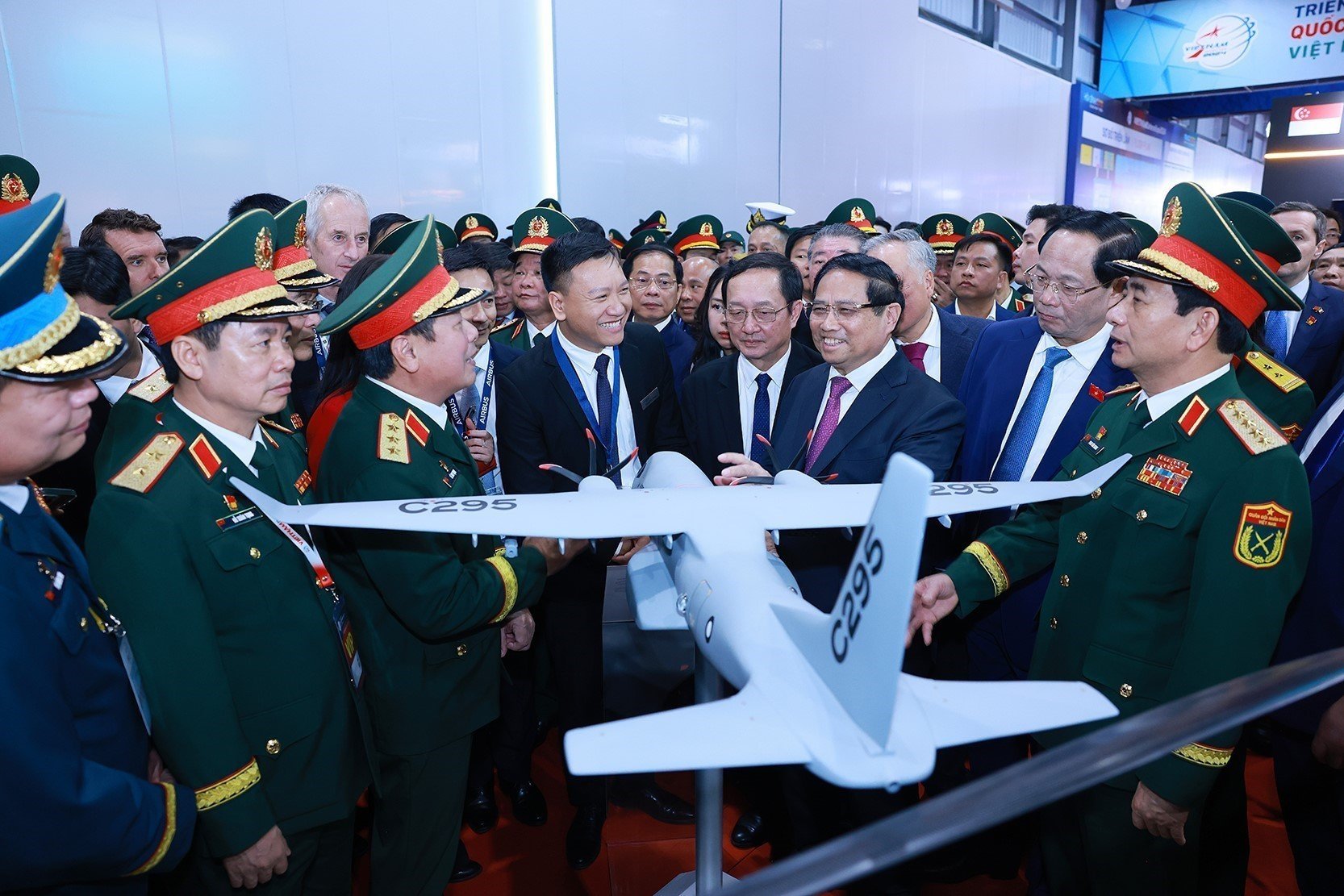
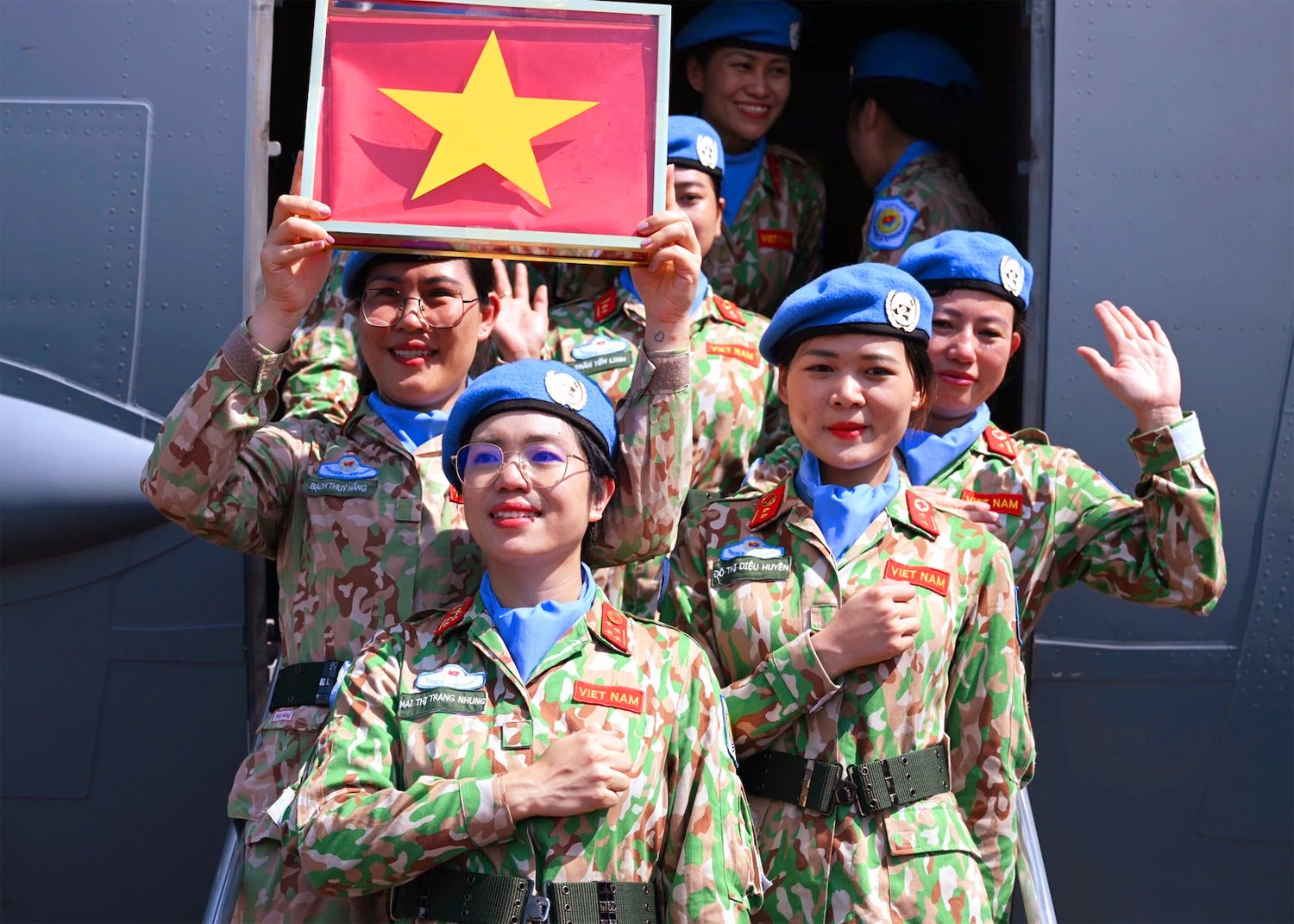
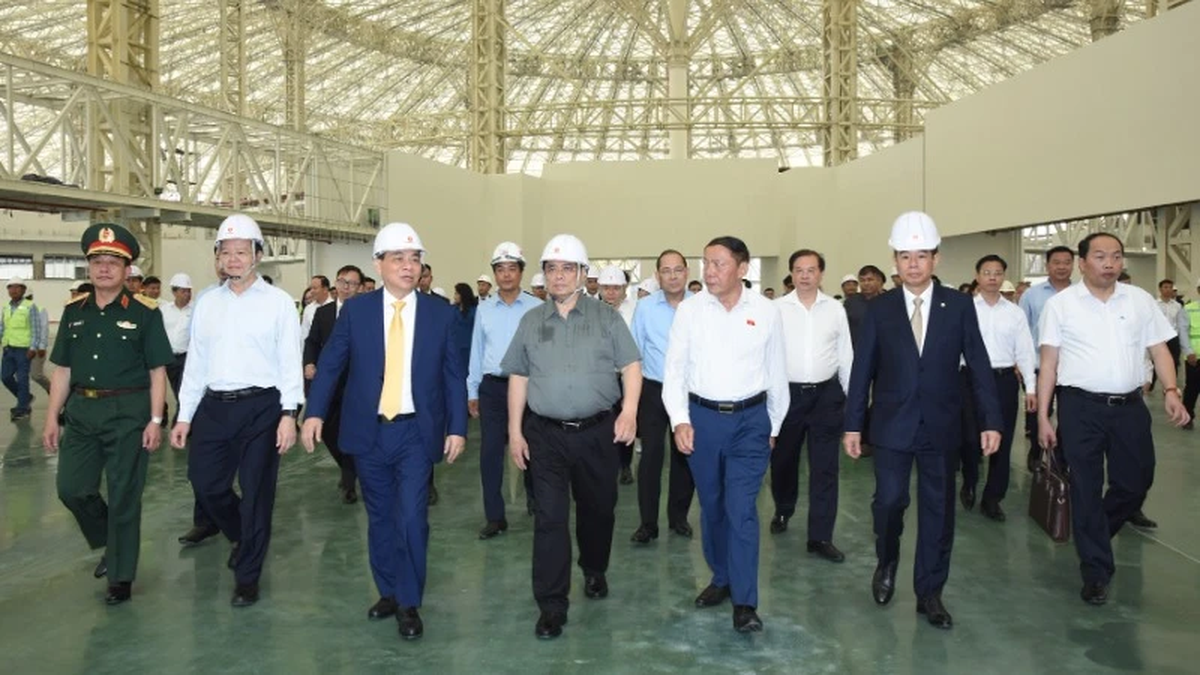
![[Photo] Prime Minister Pham Minh Chinh inspects the progress of the National Exhibition and Fair Center project](https://vphoto.vietnam.vn/thumb/1200x675/vietnam/resource/IMAGE/2025/5/19/35189ac8807140d897ad2b7d2583fbae)
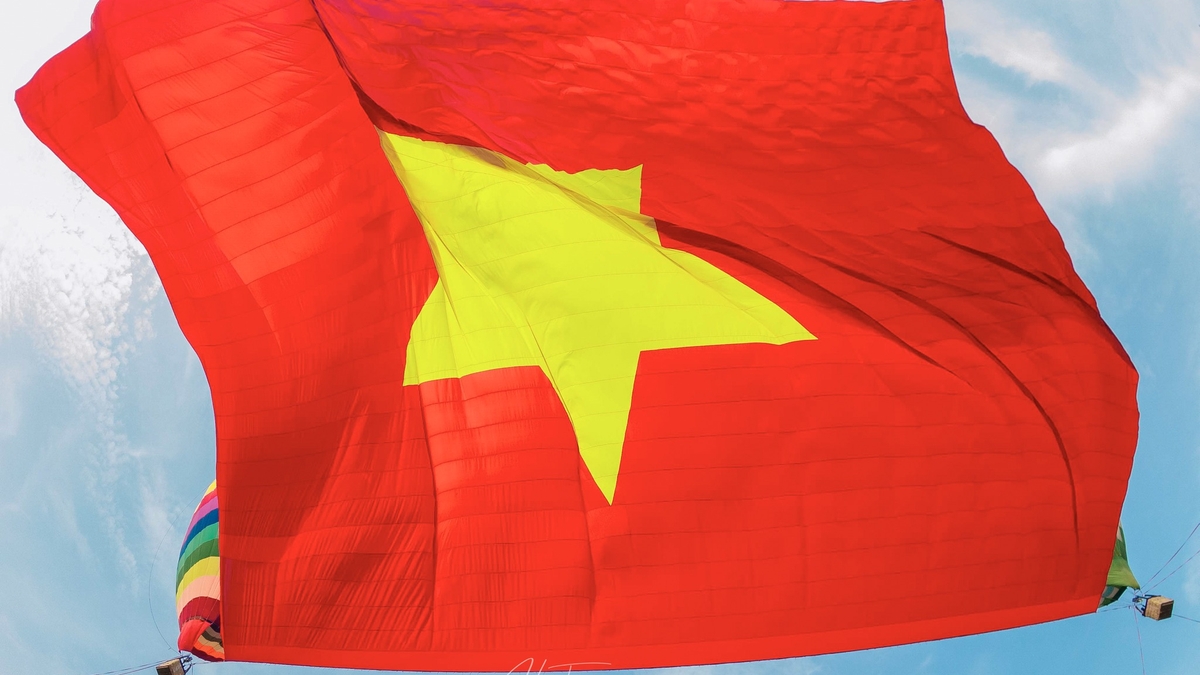
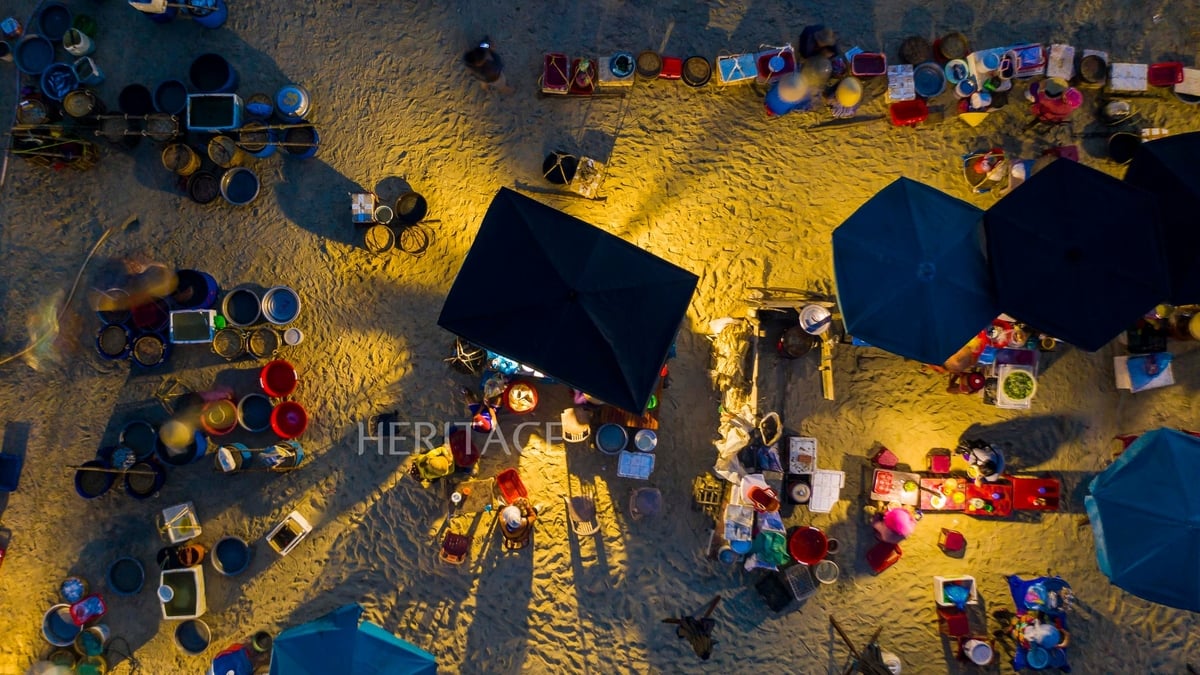


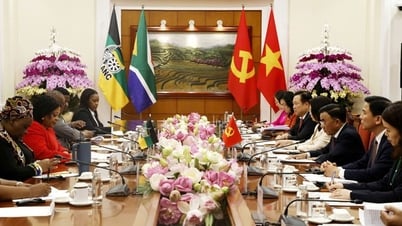

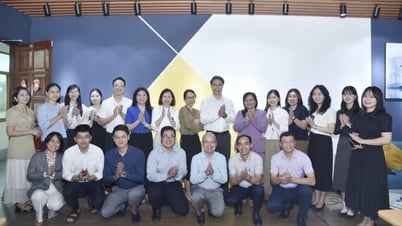

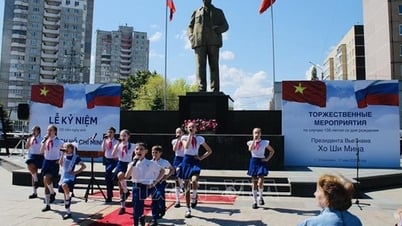

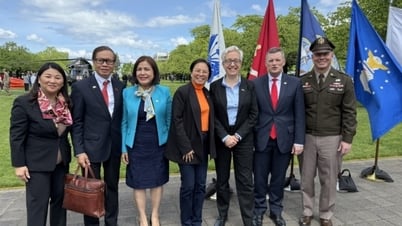
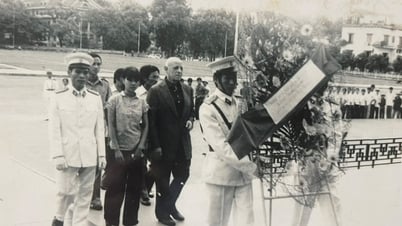





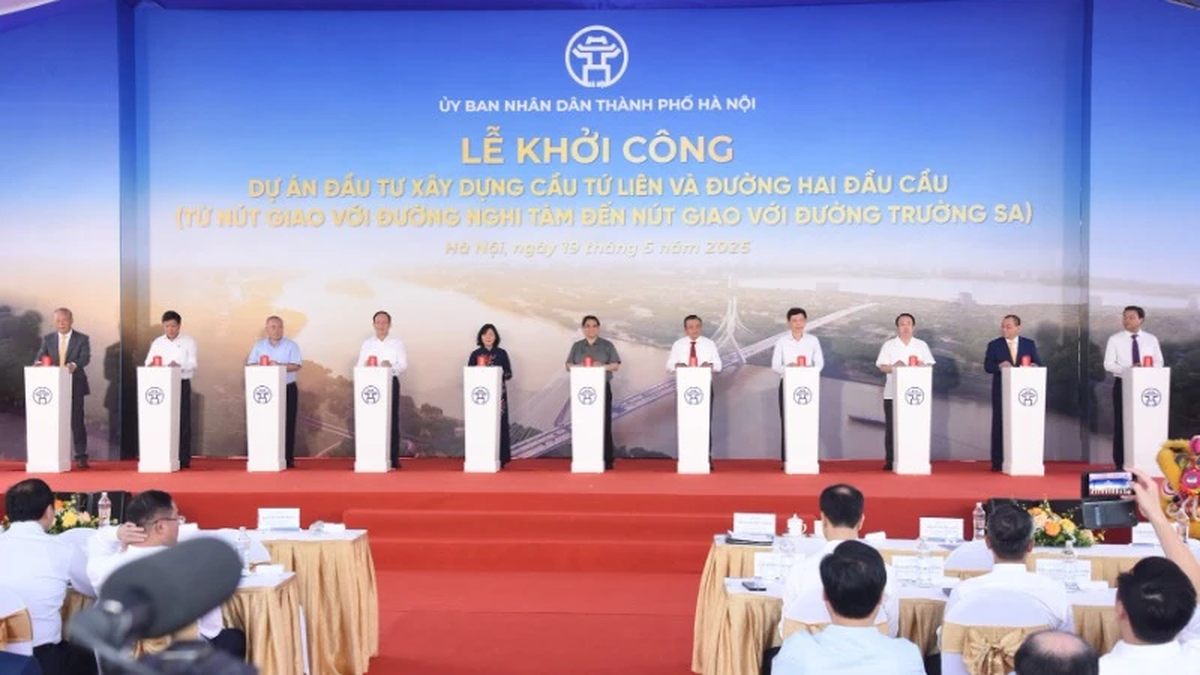









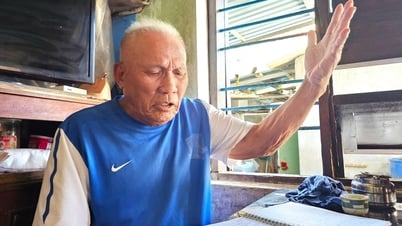






























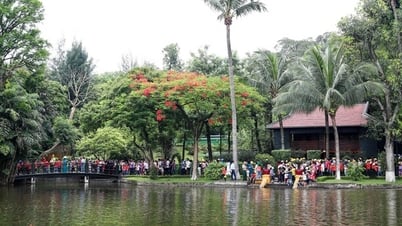

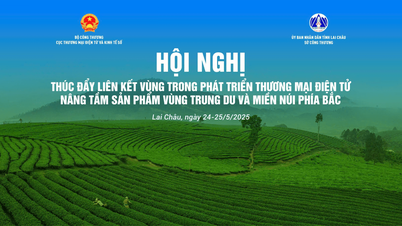
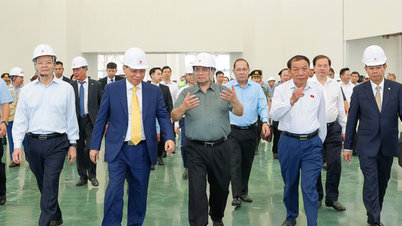
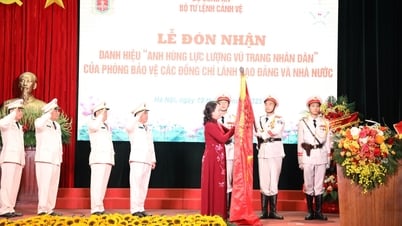


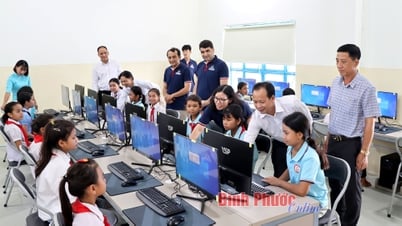

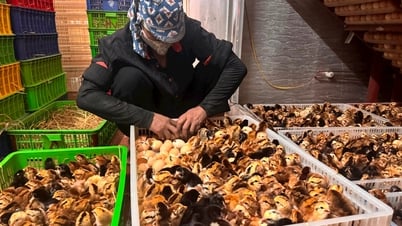

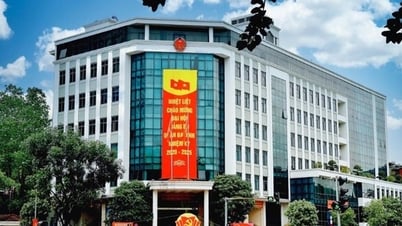
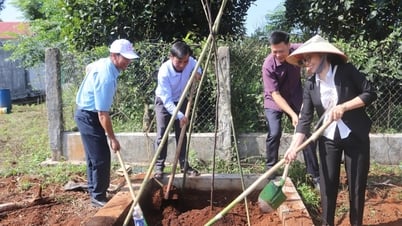

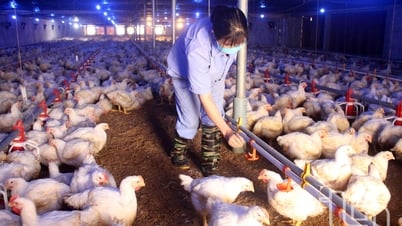





![[VIDEO] - Enhancing the value of Quang Nam OCOP products through trade connections](https://vphoto.vietnam.vn/thumb/402x226/vietnam/resource/IMAGE/2025/5/17/5be5b5fff1f14914986fad159097a677)







Comment (0)